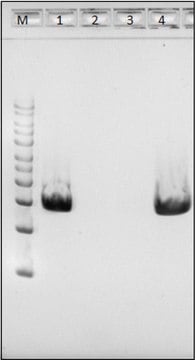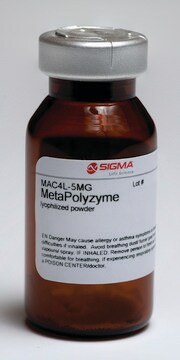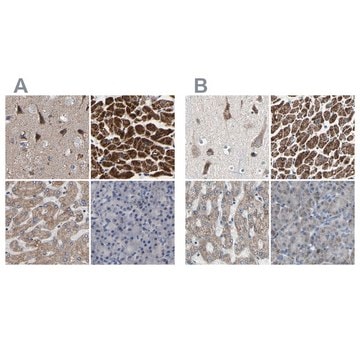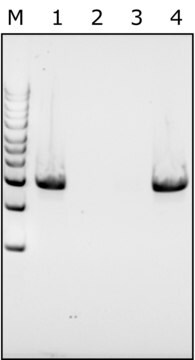MAC4LRI
MetaPolyzyme with RNase inhibitor
Suitable for Bacterial Transcriptomics
Synonym(s):
Multilytic Enzyme Mix suitable for RNA isolation
Sign Into View Organizational & Contract Pricing
All Photos(1)
About This Item
UNSPSC Code:
12352204
Recommended Products
Quality Level
form
lyophilized powder
technique(s)
DNA extraction: suitable
suitability
suitable for microbiology
application(s)
microbiology
shipped in
wet ice
storage temp.
-10 to -25°C
General description
A common difficulty among microbiome scientists is to extract nucleic acids from difficult to lyse microbes that form capsules or highly resistant spores. Some microbes are difficult to disrupt because the cell walls may form capsules or resistant spores. To address this challenge, protocols that integrate lysing enzymes can be incorporated into the nucleic acid extraction workflow.
Application
Isolating RNA from microbiome samples poses many challenges. RNA molecules are highly labile and are prone to degradation by contaminating RNases. As such, to adapt the MetaPolyzyme for RNA isolation, a broad range RNase inhibitor has been incorporated in order to help prevent RNA degradation by various RNases. MAC4LRI, includes all 6 enzymes from MetaPolyzyme to ensure maximal lysis of microorganisms while protecting the sample RNA from degradation. While it is not possible to inhibit all RNases from a specific microbial environment, we haver incorporated a proprietary RNase Inhibitor to help inhibit as many RNases as possible.
The MetaPolyzyme product family includes MAC4L, MAC4LDF (DNA-Free), SAEO200 (MycoPolyzme, for yeast and fungal lysis, DNA-Free) and MAC4LRI (RNase Inhibitor) and are based on a multi-lytic enzyme mixture formulated for effective lysis of microbiome samples from any sample type. Originally, MetaPolyZyme was developed by Scott Tighe for use on samples from extreme environments and general applications to increase DNA extraction efficiency for any method. To date, these products have been further evaluated and continuously developed in consultation and collaboration with the Association of Biomolecular Resource Facilities (ABRF) Metagenomics and Microbiome Research Group (MMRG; formerly the Metagenomics Research Group, MGRG). Several publications have cited use of MetaPolyzyme, suggesting various advantages to the usage of MetaPolyzyme for enhancing bacterial lysis.
The MetaPolyzyme product family includes MAC4L, MAC4LDF (DNA-Free), SAEO200 (MycoPolyzme, for yeast and fungal lysis, DNA-Free) and MAC4LRI (RNase Inhibitor) and are based on a multi-lytic enzyme mixture formulated for effective lysis of microbiome samples from any sample type. Originally, MetaPolyZyme was developed by Scott Tighe for use on samples from extreme environments and general applications to increase DNA extraction efficiency for any method. To date, these products have been further evaluated and continuously developed in consultation and collaboration with the Association of Biomolecular Resource Facilities (ABRF) Metagenomics and Microbiome Research Group (MMRG; formerly the Metagenomics Research Group, MGRG). Several publications have cited use of MetaPolyzyme, suggesting various advantages to the usage of MetaPolyzyme for enhancing bacterial lysis.
Features and Benefits
- Disrupts difficult to lyse microbe samples
- Protects RNA from degradation
signalword
Danger
hcodes
pcodes
Hazard Classifications
Resp. Sens. 1
Storage Class
11 - Combustible Solids
wgk_germany
WGK 3
flash_point_f
Not applicable
flash_point_c
Not applicable
Certificates of Analysis (COA)
Search for Certificates of Analysis (COA) by entering the products Lot/Batch Number. Lot and Batch Numbers can be found on a product’s label following the words ‘Lot’ or ‘Batch’.
Already Own This Product?
Find documentation for the products that you have recently purchased in the Document Library.
Our team of scientists has experience in all areas of research including Life Science, Material Science, Chemical Synthesis, Chromatography, Analytical and many others.
Contact Technical Service








